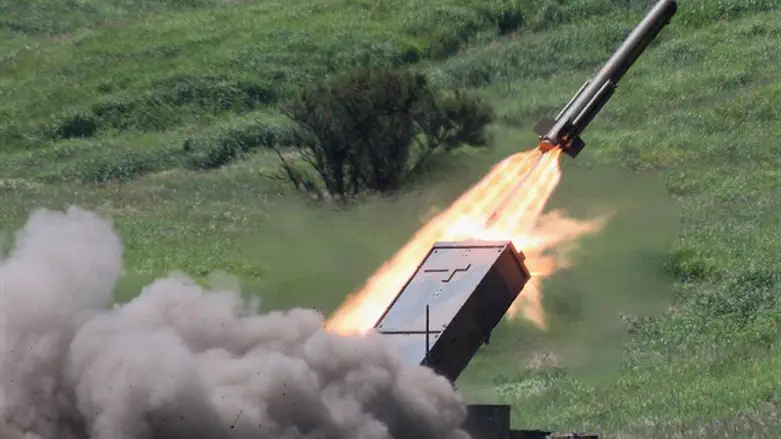
A senior army officer said Monday that Israel had fired its Arrow missile at a Syrian rocket which posed a "ballistic threat" during clashes over the weekend.
Israeli warplanes struck several targets in Syria on Friday, drawing retaliatory missile fire, in the most serious incident between the two countries since the start of the Syrian war six years ago.
Prime Minister Binyamin Netanyahu said the air strikes targeted weapons bound for Lebanon's Shiite militant group Hezbollah, and that Israel would do the same again if necessary.
Syria's military launched anti-aircraft missiles at the attackers and said it had downed an Israeli plane and hit another as they carried out pre-dawn strikes near the desert city of Palmyra.
Israel denied any of its aircraft was hit.
Defense Minister Avigdor Lieberman on Sunday threatened to destroy Syrian air defence systems "without the slightest hesitation" if they fired on Israeli planes in future.
During the sortie, Israel threw its Arrow interceptor into the fray to take out what the officer said Monday was believed to have been a Russian-made SA 5 missile.
"It was a ballistic threat focused on the state of Israel," he said, speaking in English to foreign media on condition of anonymity.
"Our mission is to defend the state and the people of Israel," he added. "That was exactly the case last week."
Former Prime Minister and Defense Minister Ehud Barak has questioned the wisdom of the Arrow launch, saying it may have escalated tensions with Syria in too public a manner.
Missile fragments fell in Jordan, which borders both Israel and Syria, without causing casualties.
But the Israeli officer said Monday that the Syrian missile, weighing "tonnes and carrying hundreds of kilos of explosives" had posed a threat that could not have been ignored.
"Try to imagine the meaning if this kind of threat would hit the cities and towns of Israel," he said.
Launching the Arrow, jointly developed by the United States and Israel, was "a correct and effective solution", he added.
Russia's foreign ministry on Monday said it had summoned Israel's ambassador over the strikes and "expressed concern".
Israel and Syria are still technically at war, though the border had remained largely quiet for decades until 2011 when the Syrian conflict broke
out.
Iranian-backed Hezbollah has been fighting inside Syria in support of President Bashar al-Assad against rebels.
While Israel has largely avoided getting sucked into the conflict directly, it has allegedly repeatedly struck Syrian territory, particularly targeting alleged Hezbollah weapons convoys.